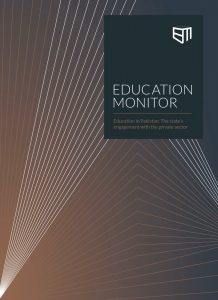 Since independence the state has envisaged an important role for the private sector in education. Over the last three decades the role of private schools, especially low-cost-private schools, has g
Since independence the state has envisaged an important role for the private sector in education. Over the last three decades the role of private schools, especially low-cost-private schools, has g
The report notes that delivering quality is a challenge in both public and private schools, and explains how using the former as the benchmark for student learning outcomes can induce a sense of complacency in the latter. It also emphasizes how the state needs to put in place institutions and processes necessary to ensure that public schools are providing education that conforms torown to account for almost one third of enrollment in all education institutions across the country. Given the growing size of the private education sector, public policy is slowly shifting towards making use of the private sector to offer education as a public good through public-private partnerships. This brief summarizes the report, which analyzes the different mechanisms through which the state engages with the private sector, such as subsidies and vouchers programs through the provincial education foundations, the private management of public schools, as well as regulatory frameworks that govern this sector.
some minimum standards as well as develop a regulatory mechanism for the private sector to encourage quality and equity without being unduly restrictive.
Author(s): Irfan Muzaffar, Ayesha A. Awan, Amal Aslam, Jahanara Saeed and Abbas Rashid
Sponsor(s): Open Society Foundations
